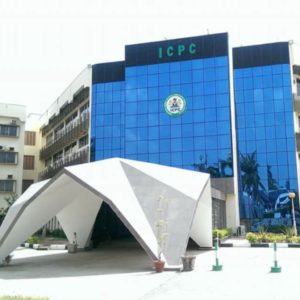The ongoing trial of Mr. Martins Ugwu, for an alleged impersonation of a medical doctor has been stalled by his absence in court.
Mr. Ugwu, who is being prosecuted by the Independent Corrupt Practices and Other Related Offences Commission (ICPC) and is on remand at the Keffi Prisons over another matter, was scheduled to appear before the High Court of the Federal Capital Territory (FCT), Gwagwalada, on Wednesday, over allegations of impersonating a certain Dr. George Daniel Davidson, to gain employment into the Federal Civil Service (FCS).
ICPC, in February 2016, filed a 7-count charge before Justice Abubakar Idris Kutigi, against Ugwu, for allegedly making false statement to the Chairman of the Federal Civil Service Commission, through which he secured employment into the Federal Ministry of Health, in 2006.
The Commission said his alleged offence contravened Section 25 (1) (a) of the Corrupt Practices and Other Related Act, 2000 and punishable under Section 25 (1) (b) of the same act.
He was alleged to have drawn salaries and allowances up to N17.2 million between 2006 and 2016, after working for about ten years as a medical doctor at the Federal Ministry of Health with the fake documents.
Ugwu further allegedly used the fake documents to procure a staff identity card bearing the name of Dr. George Daniel Davidson, apply for annual leave as well as a post graduate training programme which would have conferred on him, a Masters degree in the Field of Epidemiology Practice.
When his case was mentioned for trial, his counsel, David Ajaba, claimed not to have seen or heard from him since 6th October, 2019.
Ajaba then pleaded with the court to adjourn the matter to a later date to allow him to speak with the accused but he was told by the judge that Ugwu was in prison custody at Keffi.
Counsel to ICPC, Ekoi Akponimisingha, prayed the court to issue a ‘production warrant’ that would enable the defence counsel to bring him to court.
Justice Kutigi adjourned the matter to 22nd January, 2020 to allow the defense counsel to meet with the accused, adding that the adjournment was necessary because the accused had the right to fair hearing as enshrined in the constitution.


